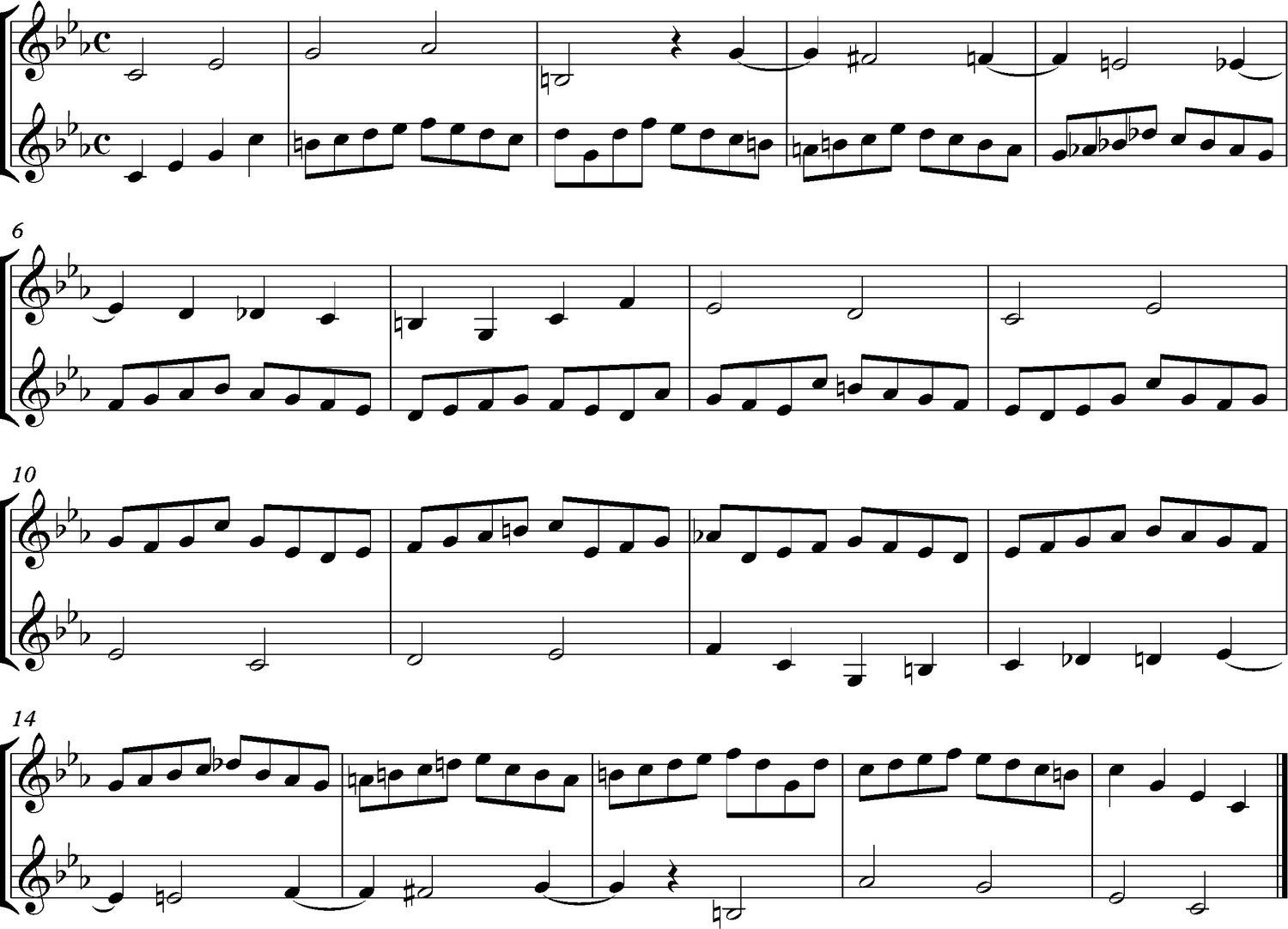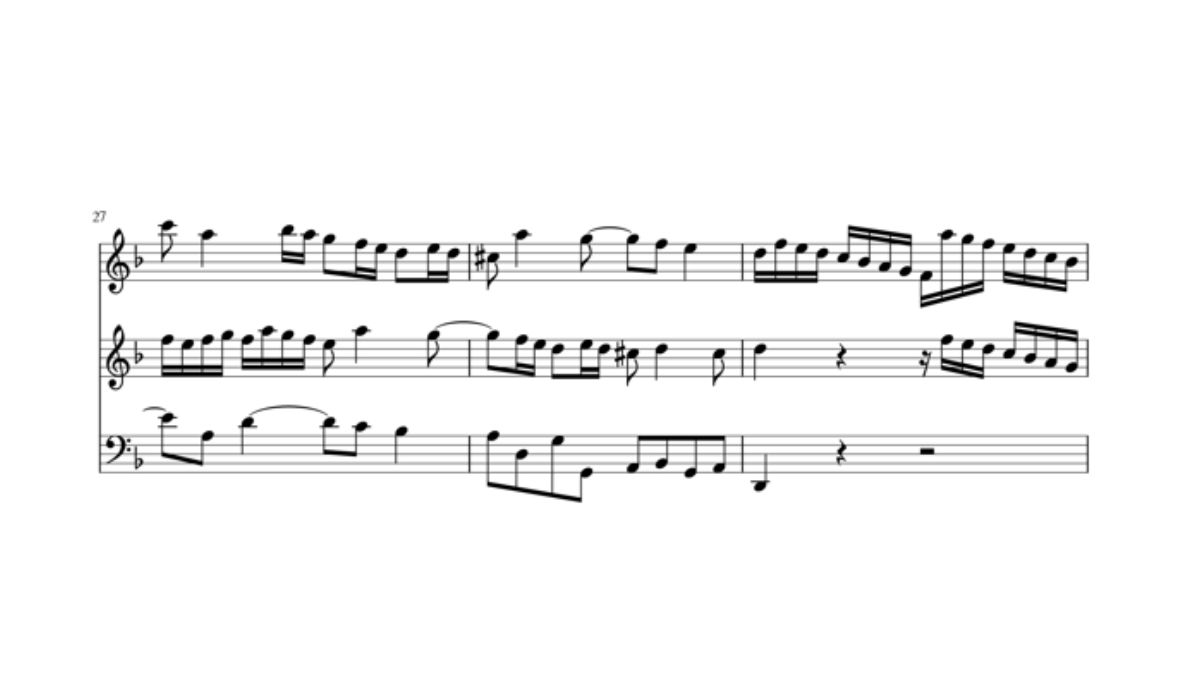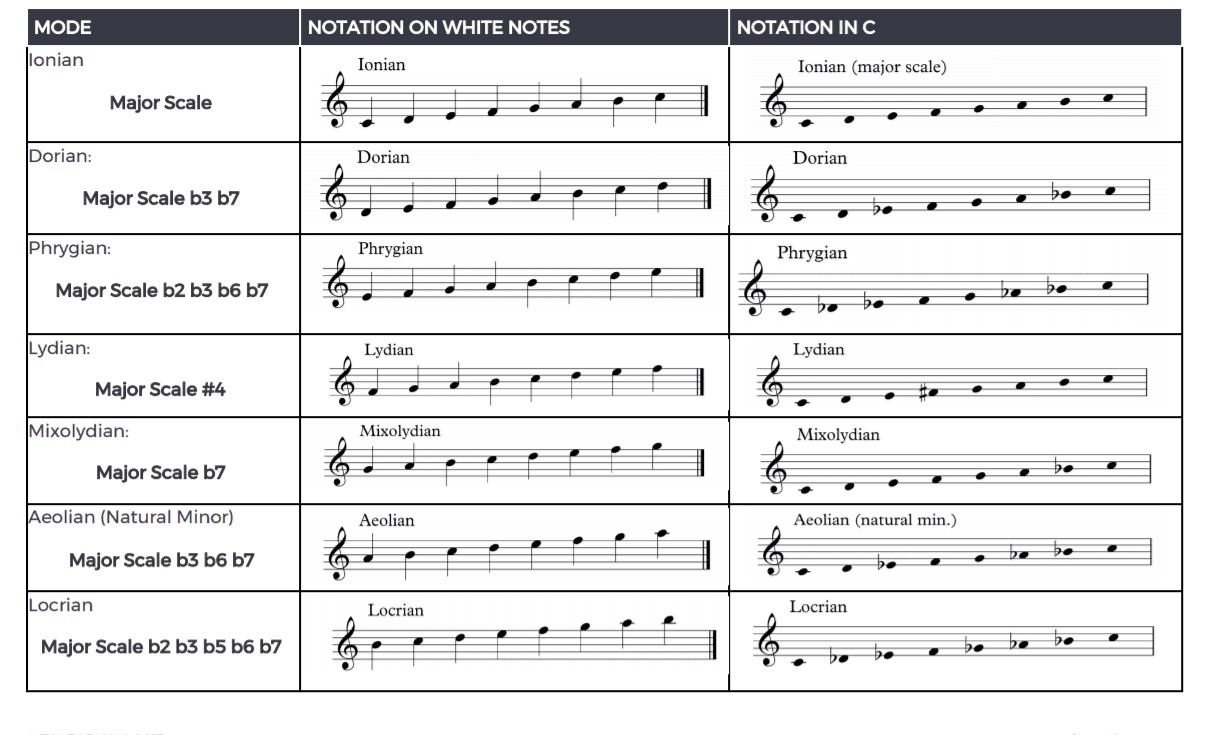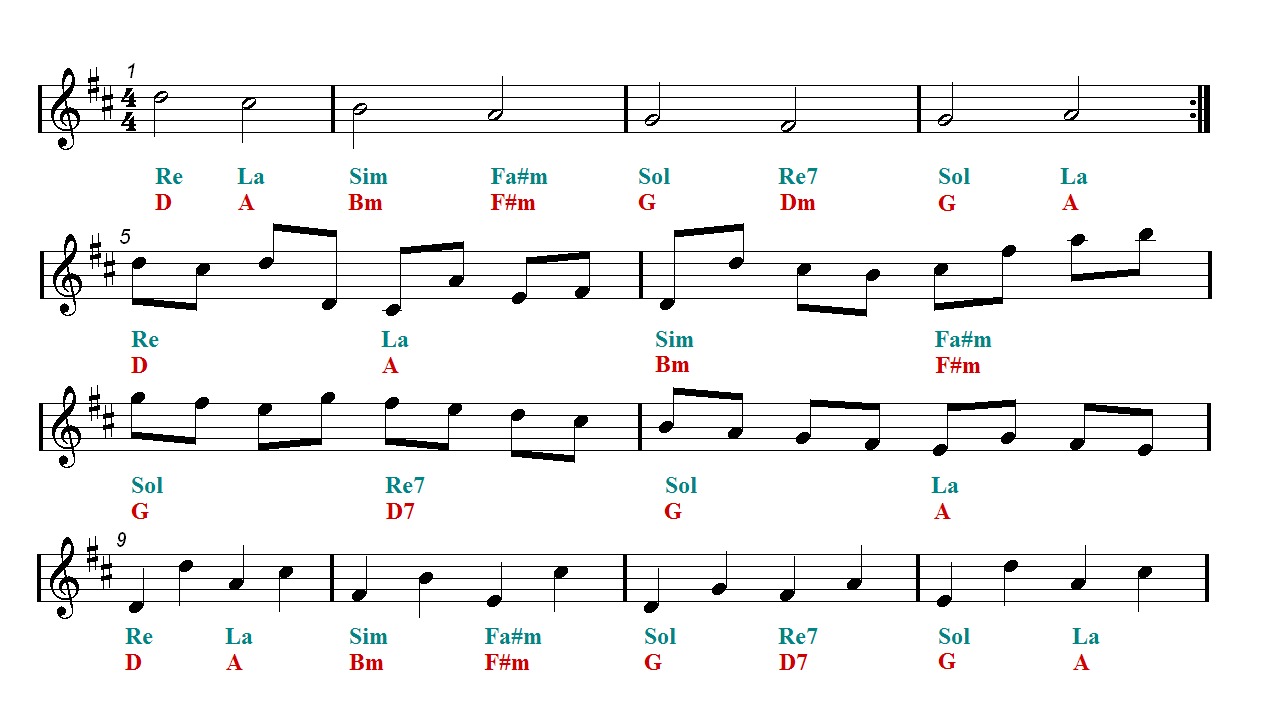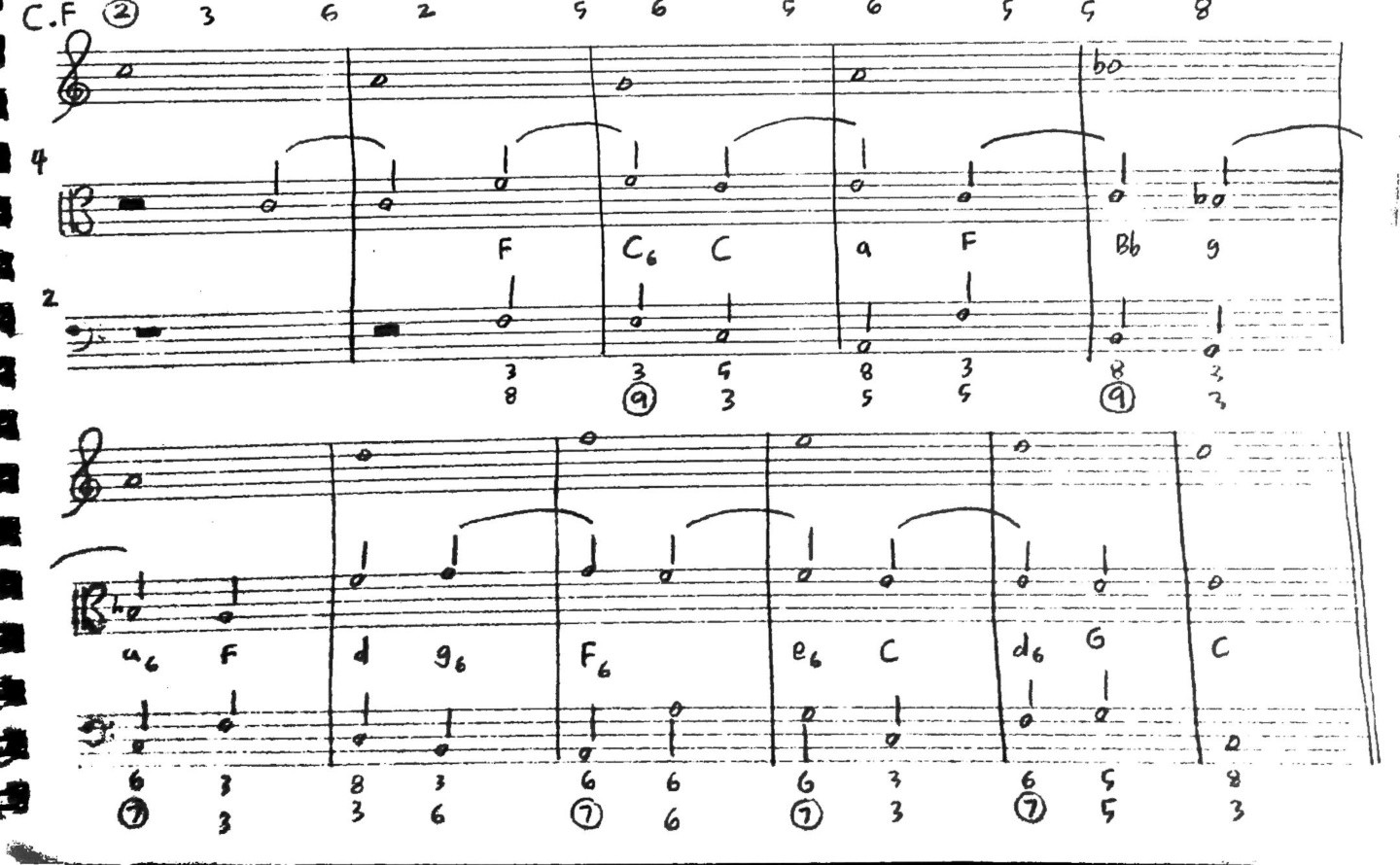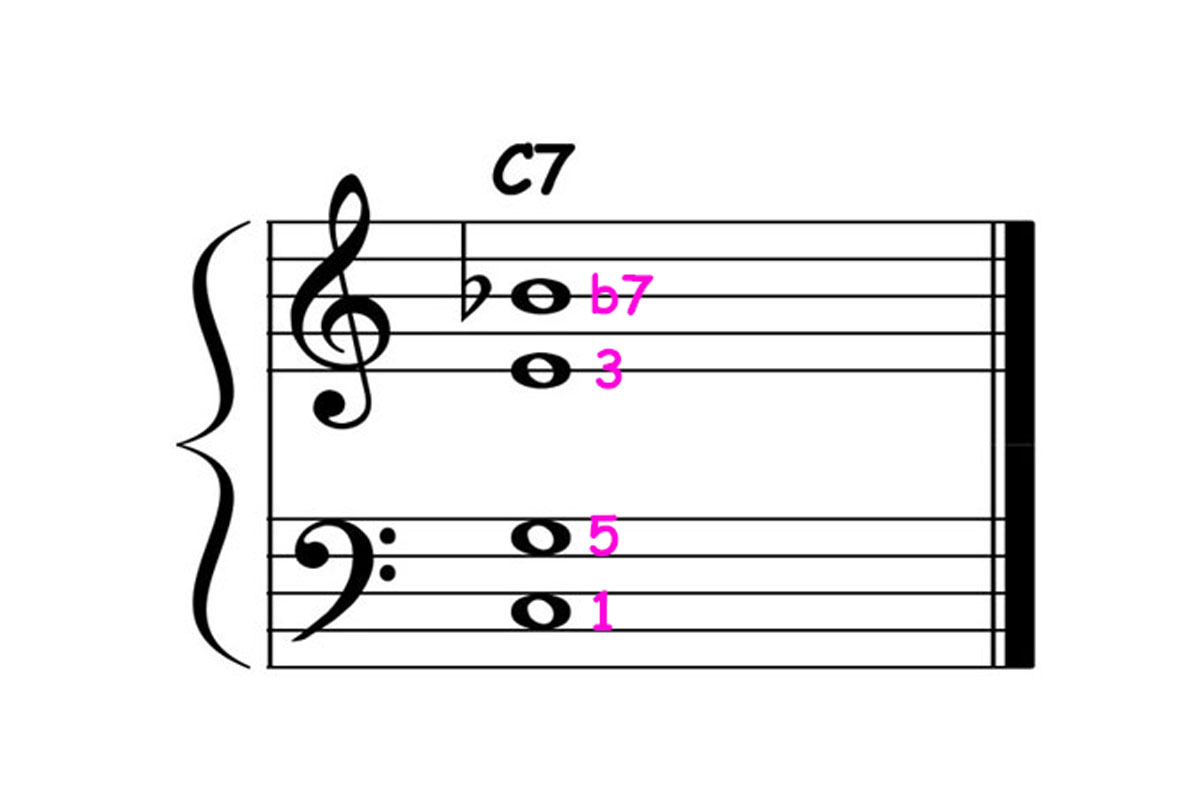Home>Production & Technology>Music Theory>What Age Teach Music Theory


Music Theory
What Age Teach Music Theory
Published: January 30, 2024
Discover the benefits of learning music theory at a young age. Explore the importance and impact of music theory in developing a solid foundation in music education.
(Many of the links in this article redirect to a specific reviewed product. Your purchase of these products through affiliate links helps to generate commission for AudioLover.com, at no extra cost. Learn more)
Table of Contents
- Introduction
- Benefits of Learning Music Theory at a Young Age
- The Cognitive Development of Children through Music Theory
- How Music Theory Enhances Creativity in Young Musicians
- The Role of Music Theory in Developing a Strong Foundation in Music Education
- The Impact of Age on Learning Music Theory
- Effective Strategies for Teaching Music Theory to Different Age Groups
- Conclusion
Introduction
Music theory is the language of music. It provides musicians with the fundamental principles and rules that govern how music is created, structured, and performed. While many people may associate music theory with complex equations and technical jargon, it is actually a crucial aspect of musical education that can be beneficial to individuals of all ages, including children.
Learning music theory at a young age can have numerous advantages. Not only does it lay the foundation for a deeper understanding of music, but it also facilitates cognitive development, enhances creativity, and contributes to a strong musical education. In this article, we will explore the benefits of teaching music theory to children, discuss the cognitive benefits associated with it, and examine effective strategies for teaching music theory to different age groups.
It is important to note that music theory is not solely for prodigious child musicians or those pursuing a career in music. Understanding the basic principles of music theory can enrich anyone’s musical journey, whether they are a beginner learning to play an instrument or an experienced musician looking to expand their horizons.
So why should we start teaching music theory at a young age? Let’s delve into the various reasons why introducing music theory to children can have a profound impact on their musical development and overall cognitive growth.
Benefits of Learning Music Theory at a Young Age
Learning music theory at a young age offers numerous advantages that can positively impact a child’s musical development and overall cognitive growth. Here are some key benefits:
- Enhanced understanding of music: Music theory provides a framework for understanding the basic elements of music, such as melody, harmony, rhythm, and structure. By learning these concepts at an early age, children can develop a deep appreciation for music and a keen ear for recognizing musical patterns and relationships.
- Improved musical performance: When children grasp the fundamental principles of music theory, it enhances their ability to read and interpret sheet music, enabling them to play their chosen instrument with greater accuracy and expressiveness. Music theory also helps children develop essential skills such as sight-reading, rhythmic accuracy, and musical phrasing.
- Fostered creativity: Music theory encourages children to experiment with different musical ideas, encouraging them to compose their own music and explore various musical genres and styles. The understanding of chord progressions, scales, and melodic patterns empowers young musicians to create their own unique compositions, fostering their creativity and self-expression.
- Improved critical thinking skills: Studying music theory requires analytical thinking and problem-solving, as students navigate through complex concepts and structures. This develops their critical thinking skills, as they learn to analyze and interpret musical compositions, identify patterns, and make musical judgments.
- Boosted academic performance: Numerous studies have shown a strong correlation between music education and academic success. Learning music theory at a young age can enhance cognitive abilities such as memory, attention, and spatial-temporal skills, which can translate into improved performance in other subjects, such as mathematics and language arts.
- Increased confidence and self-esteem: Mastering music theory concepts and successfully applying them in musical performances can boost a child’s confidence and self-esteem. As they develop their musical skills, they gain a sense of accomplishment and pride in their achievements, which can have a positive impact on their overall well-being.
These benefits highlight the importance of introducing music theory to children at an early age. By nurturing their understanding of music theory, we provide them with the tools necessary to become well-rounded musicians and lifelong appreciators of music.
The Cognitive Development of Children through Music Theory
Music theory not only enhances a child’s musical abilities but also plays a significant role in their cognitive development. Here are some ways in which music theory impacts the cognitive growth of children:
- Improved memory: Learning music theory involves memorizing musical symbols, note names, and various types of scales and chords. This constant exercise of memorization strengthens a child’s memory skills and ability to retain information. As they progress in their music theory studies, children become adept at recalling and applying the learned concepts, which can have a positive effect on their overall academic performance.
- Enhanced language skills: Music theory introduces children to a new language – the language of music. Through learning musical notation, symbols, and terminology, children develop an understanding of a different type of communication. This exposure to a complex system of symbols and their meanings can foster language skills, such as reading comprehension, decoding, and vocabulary expansion.
- Improved spatial-temporal skills: Music theory involves recognizing patterns, understanding musical structures, and interpreting musical notation. These activities engage and develop a child’s spatial-temporal skills, which are crucial for tasks such as problem-solving, mathematical reasoning, and visualizing objects or patterns in space.
- Enhanced coordination: Playing a musical instrument requires coordination between the hands, fingers, and other body parts. Music theory helps children develop hand-eye coordination, fine motor skills, and the ability to synchronize multiple movements simultaneously. This improved coordination can have a positive impact on other activities that require physical dexterity and coordination.
- Increased auditory processing: Studying music theory involves listening to various musical intervals, chords, melodies, and rhythms. This active engagement with different auditory stimuli improves a child’s ability to discern and analyze auditory information. They become more sensitive to nuances in sound, which can enhance their overall auditory processing skills and musical perception.
The cognitive benefits of learning music theory extend beyond music itself. The skills developed through music theory studies can have a positive impact on a child’s overall cognitive abilities and academic performance. By stimulating memory, enhancing language skills, improving spatial-temporal abilities, and developing coordination and auditory processing, music theory serves as a powerful tool for promoting cognitive growth in children.
How Music Theory Enhances Creativity in Young Musicians
Music theory not only provides a framework for understanding music but also unlocks the door to creative expression for young musicians. Here are some ways in which music theory enhances creativity:
- Understanding musical possibilities: Music theory introduces young musicians to the vast possibilities and structures within music. By learning about scales, chords, and chord progressions, they gain a deeper understanding of how different musical elements interact with each other. This knowledge opens up a world of creative possibilities, allowing them to experiment with different sounds and develop a unique musical style.
- Composition and improvisation: Music theory provides the foundation for composition and improvisation. It equips young musicians with the tools they need to create their own original music or develop variations of existing pieces. By understanding the relationship between melody, harmony, and rhythm, they can explore new musical ideas and express their creativity through composition and improvisation.
- Harmonic exploration: Music theory enables young musicians to explore the intricate world of harmony. By understanding chord progressions and harmonic principles, they can experiment with different chord combinations and voicings, creating unique and captivating harmonies. This exploration of harmony nurtures their creative instincts and allows them to craft emotionally rich and engaging musical compositions.
- Musical interpretation: Music theory helps young musicians develop the skills to interpret musical compositions. By analyzing the structure, key signatures, and dynamics of a piece, they can bring their own interpretation and artistic flair to the music. This interpretation and expression of their musical personality add depth and creativity to their performances.
- Genre exploration: Music theory provides young musicians with the tools to understand different musical genres and styles. By studying the harmonic, rhythmic, and melodic characteristics of various genres, they can venture into new musical territories and incorporate elements from different styles into their own compositions. This exploration and fusion of genres foster a sense of artistic individuality and creativity.
Music theory acts as a springboard for creativity in young musicians, allowing them to explore their musical potential, experiment with different musical ideas, and forge their own unique musical voices. By understanding the technical aspects of music, young musicians can break boundaries, think outside the box, and create music that is both innovative and expressive.
The Role of Music Theory in Developing a Strong Foundation in Music Education
Music theory plays a vital role in building a strong foundation in music education for young musicians. Here are some key ways in which music theory contributes to their overall musical development:
- Understanding musical structure: Music theory provides young musicians with a solid understanding of the structure and organization of music. They learn how to read and interpret musical notation, understand time signatures and key signatures, and analyze the form and structure of a piece. This knowledge allows them to approach music with a deeper level of understanding and appreciation.
- Building technical skills: Music theory enhances a young musician’s technical skills. By studying scales, arpeggios, and technical exercises, they develop dexterity, finger strength, and coordination. This technical foundation enables them to navigate their chosen instrument with proficiency and expressiveness.
- Aiding sight-reading and ear training: Music theory helps young musicians develop essential skills such as sight-reading and ear training. Through the understanding of musical symbols, notation, and intervals, they can quickly interpret and perform music from a written score. Additionally, music theory cultivates their ability to recognize and reproduce musical patterns by ear, improving their overall musicality and improvisational skills.
- Facilitating musical communication: Music theory acts as a common language among musicians. Understanding music theory allows young musicians to effectively communicate and collaborate with others in a musical setting. It enables them to discuss musical ideas, express their musical intentions, and understand the musical concepts conveyed by their peers or instructors.
- Preparing for advanced musical studies: Music theory lays the groundwork for advanced music studies in areas such as composition, musicology, and music theory itself. It provides the necessary foundation for further exploration and specialization in various musical disciplines. A strong understanding of music theory prepares young musicians for more advanced academic and practical musical pursuits.
- Fostering musical independence: By learning music theory, young musicians gain a level of independence in their musical journey. They can analyze and interpret musical compositions on their own, learn new pieces more efficiently, and even compose their own music. This independence empowers them to take ownership of their musical growth and explore their individual artistic expression.
Music theory establishes a strong foundation in music education, equipping young musicians with the knowledge and skills necessary to thrive in their musical pursuits. It not only enhances their technical abilities but also facilitates communication, prepares them for advanced studies, and fosters independence in their musical journey. A solid understanding of music theory sets the stage for a lifelong appreciation and mastery of music.
The Impact of Age on Learning Music Theory
The age at which an individual starts learning music theory can have a significant impact on their learning experience and progress. Here are some key factors to consider regarding the impact of age on learning music theory:
- Ease of learning: Younger children tend to have a greater capacity for absorbing new information and learning new concepts. They have a natural curiosity and enthusiasm that makes them more receptive to learning music theory. However, this doesn’t mean that older individuals cannot learn music theory effectively. With dedication and proper instruction, individuals of all ages can grasp the fundamental principles of music theory.
- Cognitive development: The cognitive abilities of individuals change as they age. Young children’s brains are still developing, and they may require simpler explanations and more hands-on learning experiences. Older individuals may have developed more advanced critical thinking skills, allowing them to grasp complex musical concepts more easily. However, it is important to tailor the teaching approach to the age group and adapt the curriculum accordingly.
- Prior musical experience: Age can also influence prior musical experience. Younger children may be starting their musical journey from scratch, while older individuals may have some prior musical knowledge and experience. Prior experience can both positively or negatively impact the learning process, as it can make it easier to understand certain concepts, or it may present some challenges in unlearning previous incorrect information or habits.
- Motivation and discipline: Older individuals may have a higher level of motivation and discipline when it comes to learning music theory. They may have a deeper appreciation for music and a stronger desire to understand its underlying principles. Younger children may need more guidance and encouragement to stay focused and motivated in their studies.
- Learning style and preferences: Different age groups may have different learning styles and preferences. Young children may thrive in a play-based and interactive learning environment, while older individuals may prefer a more structured and analytical approach. Adapting the teaching methods to suit the age group can significantly enhance the learning experience.
While age can influence the learning experience, it should not be seen as a barrier to learning music theory. With proper guidance and tailored instruction, individuals of all ages can successfully learn and apply music theory principles in their musical journey. It is important to recognize and embrace the unique strengths and characteristics of each age group to create an engaging and effective learning environment.
Effective Strategies for Teaching Music Theory to Different Age Groups
Teaching music theory requires adapting to the specific needs, abilities, and learning styles of different age groups. Here are some effective strategies for teaching music theory to different age groups:
- Young children (ages 4-7): For young children, a hands-on and interactive approach is key. Incorporate games, singing, and movement activities to engage their senses and make learning enjoyable. Focus on introducing basic concepts such as rhythm, melody, and notation through fun and age-appropriate songs and activities. Utilize visual aids, colorful visuals, and props to enhance their understanding of musical elements.
- Children (ages 8-12): Children in this age group have more developed cognitive abilities. They can handle more complex concepts and benefit from a balance of hands-on activities and theoretical discussions. Introduce concepts such as scales, chords, and musical form, and encourage them to apply their knowledge to practical exercises. Incorporate group activities, listening exercises, and interactive discussions to encourage their musical exploration and understanding.
- Teenagers (ages 13-18): Teenagers are ready for more in-depth learning and critical thinking. Encourage their exploration of advanced concepts such as harmony, counterpoint, and analysis. Utilize listening examples from various musical genres to broaden their musical horizons. Engage them in composition projects, encourage them to transcribe music, and guide them in analyzing and interpreting complex musical works. Incorporate technology and digital tools to enhance their learning experience.
- Adult learners: Adults may approach music theory with a higher level of discipline and motivation. Customize the learning experience to their specific goals and musical interests. Engage them in discussions and debates about music theory concepts, and encourage them to apply their knowledge through practical exercises and performance opportunities. Provide resources and references for independent study, and foster a supportive learning community through group activities or online forums.
- Individualized instruction: Regardless of age group, individualized instruction is crucial. Assess the prior musical knowledge and learning style of each student and tailor the curriculum accordingly. Provide personalized guidance and feedback to address their specific needs and challenges. Allow for flexibility in pacing and content, and encourage active participation and self-reflection.
Remember, the key to effective teaching is to create a supportive and engaging learning environment that meets the unique needs of each age group. By leveraging age-appropriate strategies, incorporating interactive activities, and catering to individual learning preferences, you can inspire a love for music theory and empower students to explore and apply their knowledge in their musical journeys.
Conclusion
Music theory is a powerful tool that plays a crucial role in the musical education of individuals of all ages. By learning music theory at a young age, children can reap the benefits of enhanced understanding, improved performance, and boosted creativity. Engaging in music theory stimulates cognitive development, improves memory, and fosters critical thinking skills. It also lays a strong foundation for further musical studies and prepares young musicians for advanced pursuits.
While the impact of age on learning music theory cannot be ignored, it should not be seen as a barrier to learning. By tailoring teaching strategies to different age groups, educators can effectively engage and inspire young learners. Providing a hands-on and interactive approach for young children, encouraging critical thinking for teenagers, and offering personalized instruction for adult learners are all key strategies for success.
Ultimately, music theory enhances a musician’s understanding, performance, and creative expression. It provides the language and framework for exploring and communicating in the realm of music. Regardless of age, a strong foundation in music theory empowers individuals to embark on a lifelong journey of musical discovery and appreciation.
So, let us celebrate the impact of music theory on children’s cognitive development, the enhancement of creativity, the building of a solid musical foundation, and the breakdown of age barriers. Embracing music theory at a young age sets the stage for musical growth and opens the doors to a world of musical possibility.



